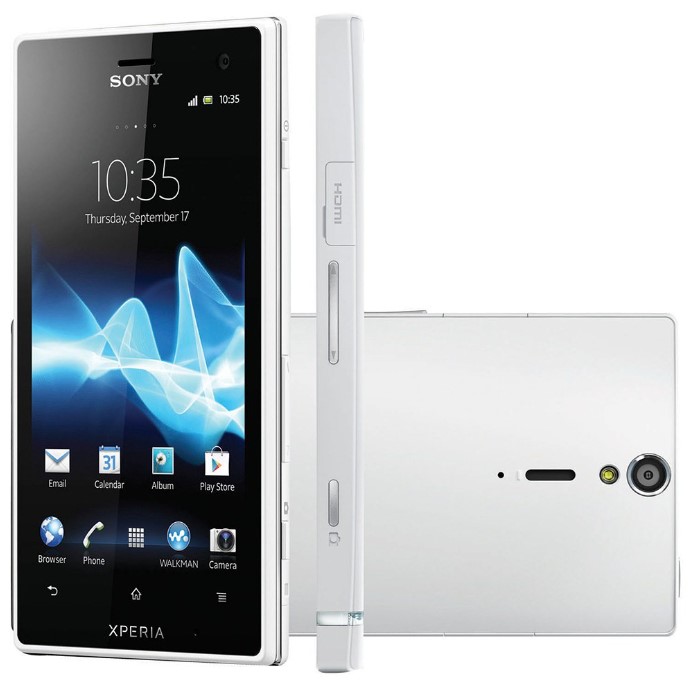The following article presents a concise evaluation of the Sony Xperia S smartphone, along with its specifications. Sony’s acquisition of Ericsson signifies a strategic move towards reclaiming its former autonomy in the realm of mobile technology, dissociating itself from the collaboration with the Swedish telecommunications giant.
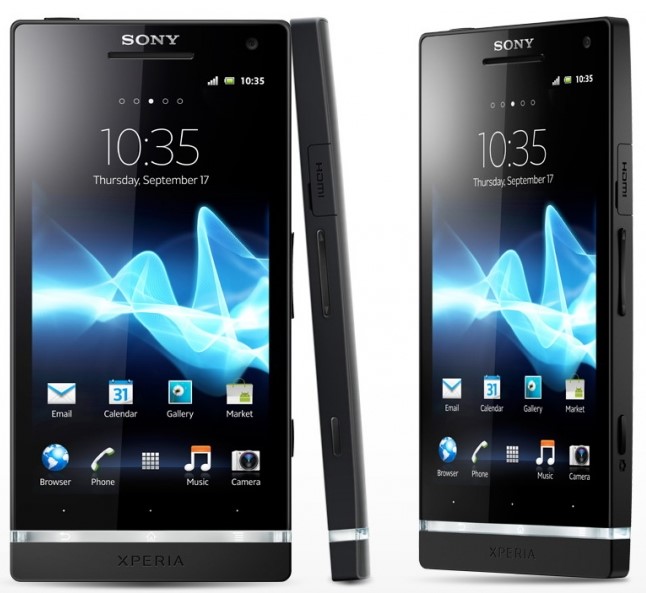
The initial foray into asserting this newfound independence materializes in the rapidly evolving landscape of Android smartphones. Leading the charge is the Sony Xperia S, marking the inaugural model under the Sony banner to feature the Android operating system.
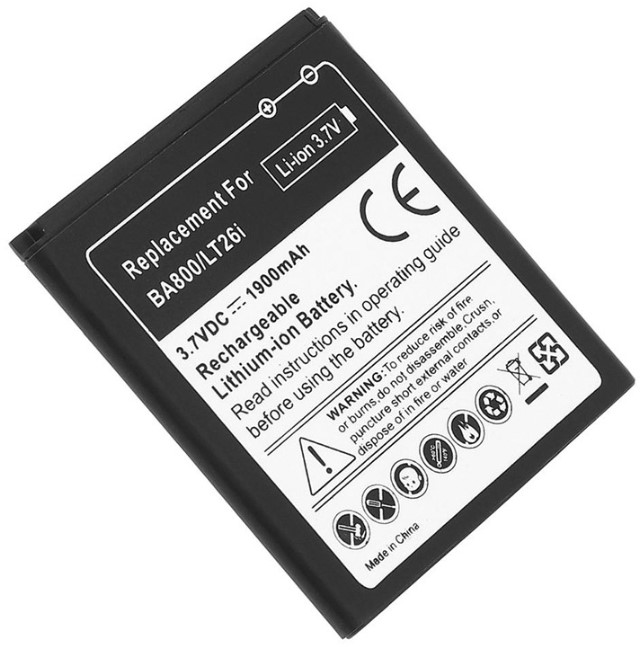
The previous design approach that originated from the Xperia X10 has been abandoned, which is regrettable as I was fond of the Xperia Arc design. The Xperia S, characterized by its sharp edges and angular aesthetics, embodies a distinctly Sony-inspired design ethos, drawing influence from their other product lines such as the Bravia TV. While the Xperia Arc retained traces of vintage Ericsson designs seen in classics like the T28, the Xperia S lacks such elements. It’s almost as if the designers at Sony Ericsson anticipated the eventual split and consciously departed from their previous design language.

Prominently positioned as a robust contender in the market, the Sony Xperia S boasts a formidable array of features. Anchored by a 4.3-inch screen and powered by a 1.5 GHz dual-core processor, the device promises a seamless user experience. Notably, its standout feature lies in the rear-facing 12-megapixel camera, complemented by a 1.3-megapixel front-facing camera. Sony touts the ability to capture high-quality photos in a mere one and a half seconds from standby mode, ensuring unparalleled convenience for users. With its capacity to deliver stunning visuals on 1280 × 720 screens, the Xperia S camera is poised to redefine mobile photography standards.
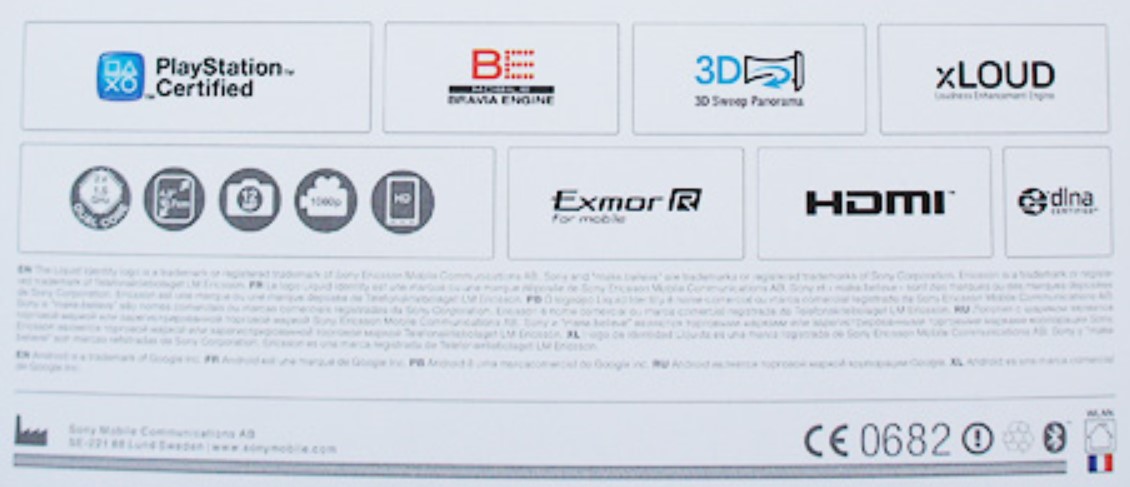
| Category | Specifications |
|---|---|
| NETWORK | Technology: GSM / HSPA |
| LAUNCH | Announced: 2012, January |
| Released: 2012, February | |
| Status: Discontinued | |
| BODY | Dimensions: 128 x 64 x 10.6 mm (5.04 x 2.52 x 0.42 in) |
| Weight: 144 g (5.08 oz) | |
| SIM: Micro-SIM | |
| DISPLAY | Type: LED-backlit LCD |
| Size: 4.3 inches, 51.0 cm2 (~62.2% screen-to-body ratio) | |
| Resolution: 720 x 1280 pixels, 16:9 ratio (~342 ppi density) | |
| Protection: Scratch-resistant glass | |
| PLATFORM | OS: Android 2.3 (Gingerbread), upgradable to 4.1.2 (Jelly Bean) |
| Chipset: Qualcomm MSM8260 Snapdragon S3 | |
| CPU: Dual-core 1.5 GHz Scorpion | |
| GPU: Adreno 220 | |
| MEMORY | Card slot: No |
| Internal: 32GB 1GB RAM | |
| MAIN CAMERA | Single: 12 MP, AF |
| Features: LED flash, panorama | |
| Video: 1080p@30fps | |
| SELFIE CAMERA | Single: 1.3 MP |
| Video: 720p@30fps | |
| SOUND | Loudspeaker: Yes |
| 3.5mm jack: Yes | |
| COMMS | WLAN: Wi-Fi 802.11 b/g/n, DLNA, hotspot |
| Bluetooth: 2.1, A2DP, EDR | |
| Positioning: GPS, A-GPS, GLONASS | |
| NFC: Yes | |
| Radio: Stereo FM radio, RDS | |
| USB: microUSB 2.0, OTG | |
| FEATURES | Sensors: Accelerometer, gyro, proximity, compass |
| ANT+ | |
| TV launcher | |
| HDMI port | |
| MP4/H.264/WMV player | |
| MP3/eAAC+/WMA/WAV player | |
| TrackID music recognition | |
| Document viewer | |
| Voice memo/dial/commands | |
| Predictive text input | |
| BATTERY | Type: Non-removable Li-Ion 1750 mAh battery |
| Stand-by: Up to 450 h (2G) / Up to 420 h (3G) | |
| Talk time: Up to 7 h 30 min (2G) / Up to 8 h 30 min (3G) | |
| Music play: Up to 25 h | |
| MISC | Colors: White, Black, Silver |
| Models: LT26i | |
| SAR: 1.31 W/kg (head), 0.60 W/kg (body) | |
| SAR EU: 1.30 W/kg (head) | |
| Price: About 230 EUR | |
| TESTS | Display: Contrast ratio: 1038:1 (nominal) |
| Camera: Photo / Video | |
| Loudspeaker: Voice 72dB / Noise 61dB / Ring 69dB | |
| Audio quality: Noise -86.6dB / Crosstalk -86.9dB |
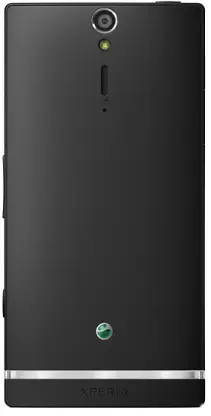
Supplementing its impressive hardware specifications, the Sony Xperia S incorporates cutting-edge technologies such as the Mobile BRAVIA Engine and Near Field Communication (NFC) support. Additionally, users benefit from ample storage space, courtesy of the device’s 32GB internal memory. On the software front, the Xperia S operates on the Gingerbread version of the Android platform, with Sony pledging ongoing software enhancements to enhance user experience.
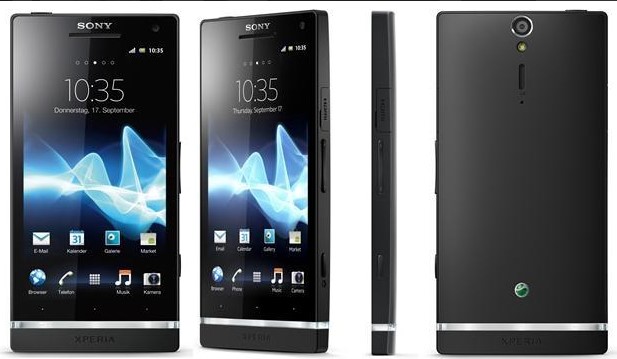
While bearing a striking resemblance to the purported Xperia Arc HD prototype, Sony opts for a distinctive nomenclature upon official launch. This decision underscores a strategic blend of preserving the Xperia brand’s legacy while signaling Sony’s autonomous trajectory in the competitive market landscape. This strategic move positions Sony to assert its dominance in the market, positioning itself ahead of rival offerings from industry heavyweights such as Samsung and HTC.
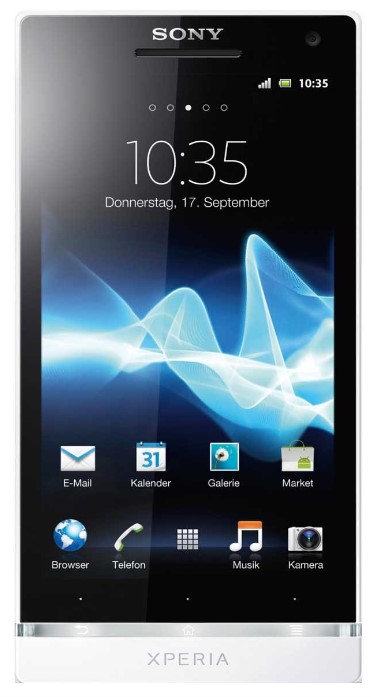
Consumers are offered a choice between black and white models, catering to diverse aesthetic preferences and ensuring broader market appeal.
| Aspect | Details |
|---|---|
| Background | Sony Ericsson, a joint venture between Sony and Ericsson, was formed in 2001 to compete with Nokia in the mobile phone market. After a decade, Sony took full control of the venture. Ericsson received $1.5 billion for its 50% share. |
| Sony Xperia S | Released in January 2012, the Xperia S was Sony’s first flagship phone after the split. It featured a unique design with a transparent strip acting as an antenna. It included a dedicated HDMI port and a camera shutter release, which were uncommon at the time. |
| Design | The Xperia S’s design stood out with its transparent strip and capacitive touch buttons. It had a non-removable battery, and the back cover displayed both the Sony and Sony Ericsson logos, reflecting the transition period. |
| Usage in 2023 | In 2023, using the Xperia S presents challenges due to outdated software. Running Android 4.1.2, many apps are no longer compatible. While some functionalities like Google search and Gmail still work, others like YouTube require newer Android versions. |
| App Compatibility | The Xperia S struggles with app compatibility, as newer versions of apps require higher Android versions and more RAM. Third-party ROMs based on newer Android versions may offer a workaround, but compatibility and performance can vary. |
| Google Discover Feature | Despite software limitations, features like Google Discover, which provide personalized content based on user interests, can still be accessed. This feature relies on Google’s algorithms and machine learning to curate relevant content for users. |
| Web Browsing | Basic web browsing through Chrome still functions on the Xperia S, albeit with an older version of the browser. While video playback on YouTube’s app may not be supported, streaming videos through the Chrome browser remains possible. |
| Camera Quality | The Xperia S’s camera, with a 12-megapixel rear and 1.3-megapixel front camera, was competitive for its time. However, advancements in software processing have led to significant improvements in modern smartphone photography, overshadowing the Xperia S’s capabilities. |
| Summary | Despite its limitations, the Xperia S was a unique and distinctive smartphone in its era. However, Sony’s presence in the smartphone market has diminished over time, with few users opting for Sony phones compared to other brands. The Xperia S remains a notable milestone as Sony’s first solo venture into smartphones. |
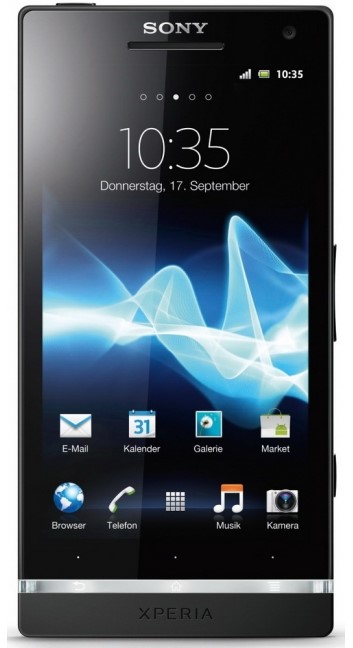
Pros
- Unique Design: The Sony Xperia S featured a distinctive design with a transparent strip acting as an antenna, setting it apart from other smartphones of its time.
- Camera Quality: With a 12-megapixel rear camera and a 1.3-megapixel front camera, the Xperia S offered competitive photography capabilities, allowing users to capture high-quality images and videos.
- HDMI Port: An uncommon feature at the time, the Xperia S included a dedicated HDMI port, enabling users to connect their devices directly to compatible displays for multimedia playback.
- Camera Shutter: The inclusion of a physical camera shutter release button allowed users to easily capture photos without relying solely on the touchscreen interface, enhancing the overall user experience.
- Display Technology: Boasting a 4.3-inch screen with Sony’s Bravia HD technology, the Xperia S delivered vibrant colors and sharp visuals, providing an immersive viewing experience for multimedia content.
- Build Quality: Sony’s commitment to craftsmanship was evident in the Xperia S, with a solid build quality that exuded durability and a premium feel, ensuring that the device could withstand daily wear and tear.
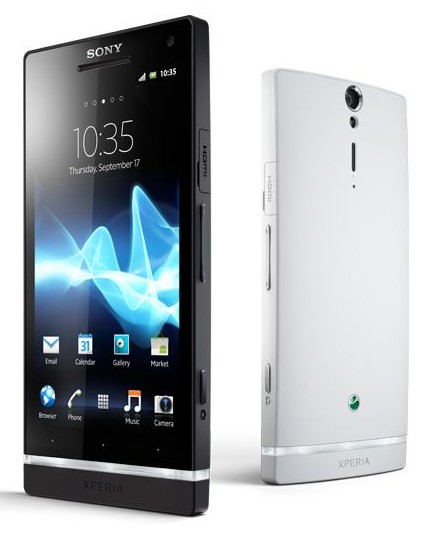
Cons
- Outdated Software: The Xperia S shipped with Android Gingerbread 2.3, an outdated operating system by modern standards, limiting access to newer apps and features and potentially exposing the device to security risks.
- App Compatibility: Due to its outdated software, the Xperia S may struggle with compatibility issues when running newer apps that require higher Android versions, hindering the user experience and limiting functionality.
- Limited Support: As Sony’s focus shifted away from the Xperia S towards newer models, the device received limited software updates and support, leaving users with few options for addressing performance issues or bugs.
- Non-Removable Battery: Unlike some of its contemporaries, the Xperia S featured a non-removable battery, preventing users from easily swapping out the battery for a fresh one or replacing it when it reached the end of its lifespan.
- Aging Hardware: While the Xperia S’s hardware was impressive at the time of its release, advancements in technology have rendered it outdated, resulting in slower performance and reduced capabilities compared to modern smartphones.
- Limited App Updates: As app developers focus on optimizing their software for newer devices and operating systems, older devices like the Xperia S may receive fewer updates and optimizations over time, leading to compatibility issues and potential performance degradation.
- End of Life Cycle: With Sony’s shift towards newer smartphone models, the Xperia S reached the end of its life cycle, receiving fewer updates and support from the manufacturer, ultimately limiting its longevity and usability for users.
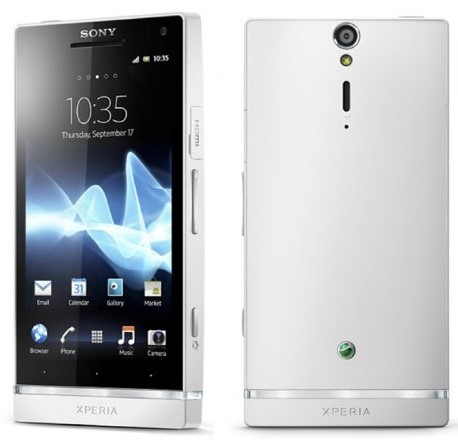
Overall
Despite its unique design and competitive camera capabilities, the Sony Xperia S faces significant drawbacks due to its outdated software, limited app compatibility, and lack of support from the manufacturer. While it may still hold nostalgic value for some users, its practical utility in today’s smartphone landscape is greatly diminished.
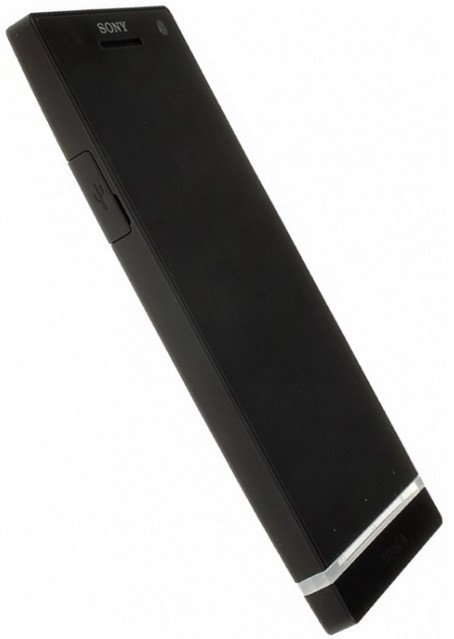
Sony Xperia S
-
Performance - 93%93%
-
Price - 92%92%
-
Value - 93%93%

